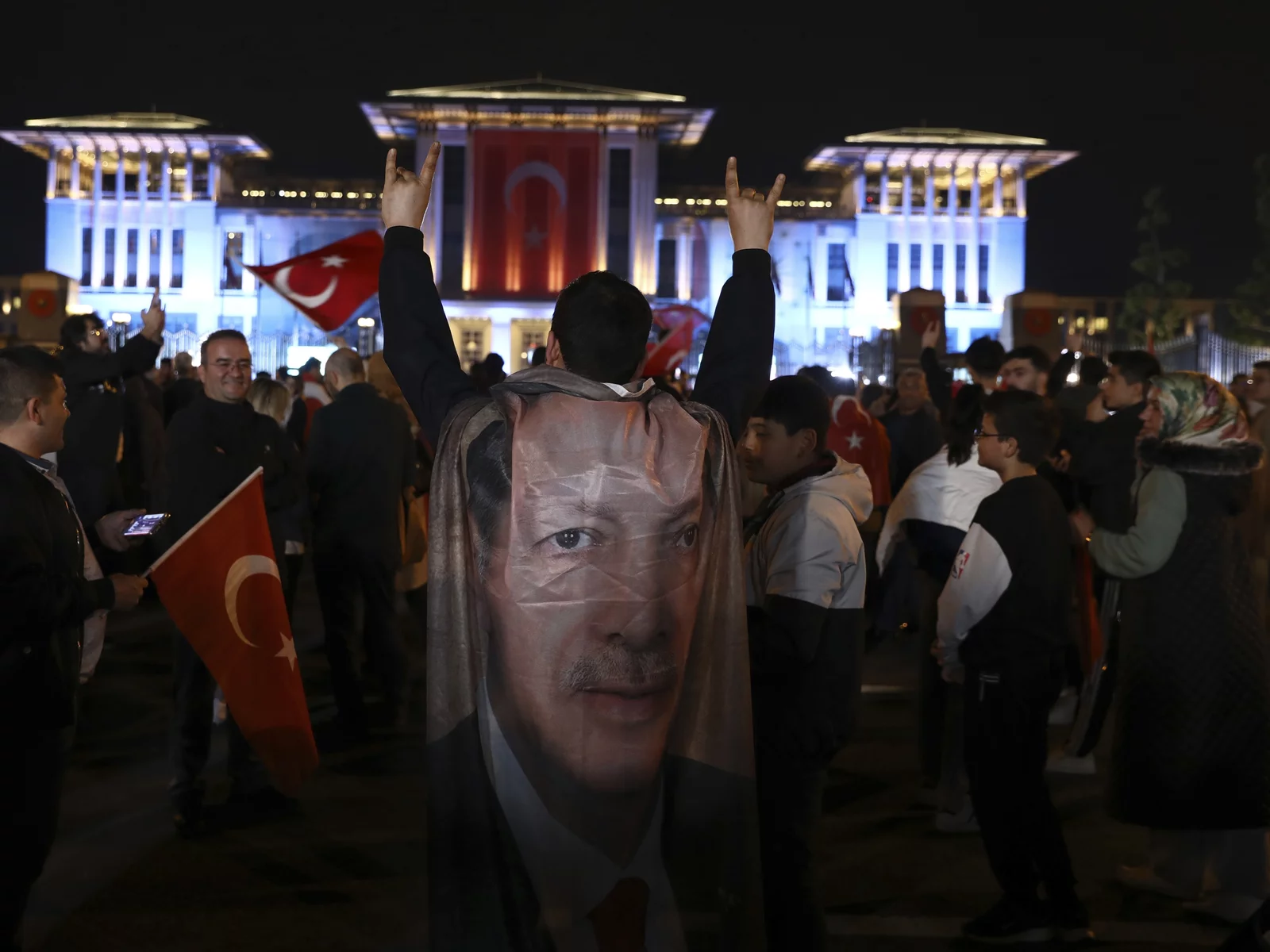In a momentous and historic event, Turkish President Recep Tayyip Erdogan has emerged victorious in a runoff election, thereby solidifying his hold on power and overcoming one of the most formidable challenges of his political career. This triumph not only marks his third term as the country’s leader but also reinforces his position as the sole executive authority, despite the mounting discontent within Turkey. Interestingly, Erdogan’s victory comes amidst increasing criticism of his unorthodox economic policies, inadequate response to a devastating earthquake, and perceived erosion of democratic freedoms.
The announcement of the election results was made by Ahmet Yener, the head of Turkey’s Supreme Election Council. According to the latest data, Erdogan secured 52.14% of the votes, while his opponent, Kemal Kilicdaroglu, received 47.86% when 99.4% of the ballots were counted. This narrow margin highlights the intense competition and the significance of each vote cast.
The runoff election was triggered when the initial round of voting, held two weeks earlier, failed to produce a clear winner, marking the first time such an outcome occurred in the history of the Turkish Republic. Despite the absence of a decisive result, Erdogan maintained a 4.5 percentage point lead over Kilicdaroglu, providing him with an advantage as they headed into the final vote.
Throughout the electoral campaign, Erdogan and Kilicdaroglu presented divergent visions for Turkey’s future. At the age of 69, Erdogan led a divisive strategy that portrayed him as the leader capable of elevating Turkey’s global standing, relying on his trademark religious nationalist rhetoric. Additionally, he accused Kilicdaroglu of having links with terrorists and being influenced by Western nations.
Erdogan’s supporters perceive him as a modernizer who has propelled Turkey onto the global stage, improved infrastructure, enhanced military capabilities, and empowered religious Turks who were oppressed during previous secular leadership eras. However, critics view him as an autocrat responsible for nurturing government corruption, which has contributed to shoddy and unregulated construction practices. Regrettably, this contributed to the devastating impact of a February earthquake, resulting in the collapse of hundreds of thousands of buildings and claiming the lives of over 50,000 people.
Kemal Kilicdaroglu, 74, garnered support from a coalition of parties comprising secularists, Islamists, and nationalists, offering Erdogan and his ruling party their most robust opposition in years. Kilicdaroglu pledged to restore Turkey’s original parliamentary democracy, reverting the executive presidency established following a constitutional referendum in 2017. Furthermore, he vowed to combat corruption, revitalize the economy, and restore independence to the judiciary. However, Kilicdaroglu’s campaign also featured nationalist and anti-immigrant rhetoric, emphasizing his plans to secure Turkey’s borders and repatriate the nearly 4 million Syrian refugees who sought sanctuary in Turkey during the civil war.
The final round of the election witnessed a decline in voter turnout compared to the initial vote, which boasted an impressive participation rate of nearly 89%. The opposition, initially optimistic about defeating Erdogan in the first round, faced a significant morale setback and failed to regain full momentum during the two-week interval.
Despite a considerable portion of the Turkish population expressing weariness with Erdogan’s extended tenure and an economy grappling with an unstable currency and rising living costs, Kilicdaroglu struggled to convince undecided voters that he could outperform Erdogan. According to Vahap Coskun, a political scientist and professor of law at Dicle University in Diyarbakir, Turkey, Kilicdaroglu’s party carried unresolved historical baggage that hindered his ability to present himself as a genuine alternative to the charismatic Erdogan.
The electoral race was widely viewed as far from fair and equitable. Erdogan enjoyed significant control over Turkey’s broadcast media, frequently appearing on television, while Kilicdaroglu had to rely on social media platforms and YouTube to disseminate his message. Additionally, Erdogan utilized government resources to distribute benefits to millions of citizens and increased the minimum wage multiple times in the past year.
Erdogan’s victory carries implications that extend beyond Turkey’s borders. As a regional powerhouse, a member of NATO, and both a strategic and occasionally challenging ally to the United States, Turkey’s foreign policy decisions significantly impact global affairs. Throughout Erdogan’s tenure, Turkey has maintained close ties with Russia, defied Western sanctions, and obstructed Sweden’s NATO membership by withholding ratification. Furthermore, Erdogan has expanded the Turkish military’s presence in Northern Syria and facilitated a United Nations-brokered deal between Ukraine and Russia, allowing Ukrainian grain exports despite the Russian blockade.
Experts predict that Erdogan will continue with his established approach over the next five years, maintaining consistency in both domestic and international matters. Political analyst Selim Koru asserts that there is little reason to anticipate a reversal of Erdogan’s course or a softening of his approach.
















































